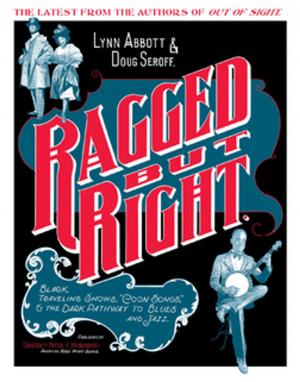Dangerous Curves
Action Heroines, Gender, Fetishism, and Popular Culture
Nonfiction, Entertainment, Film, History & Criticism, Social & Cultural Studies, Social Science, Cultural Studies, Popular Culture, Gender Studies| Author: | Jeffrey A. Brown | ISBN: | 9781604737158 |
| Publisher: | University Press of Mississippi | Publication: | February 1, 2011 |
| Imprint: | University Press of Mississippi | Language: | English |
| Author: | Jeffrey A. Brown |
| ISBN: | 9781604737158 |
| Publisher: | University Press of Mississippi |
| Publication: | February 1, 2011 |
| Imprint: | University Press of Mississippi |
| Language: | English |
Dangerous Curves: Action Heroines, Gender, Fetishism, and Popular Culture addresses the conflicted meanings associated with the figure of the action heroine as she has evolved in various media forms since the late 1980s. Jeffrey A. Brown discusses this immensely popular character type as an example of, and challenge to, existing theories about gender as a performance identity. Her assumption of heroic masculine traits combined with her sexualized physical depiction demonstrates the ambiguous nature of traditional gender expectations and indicates a growing awareness of more aggressive and violent roles for women.
The excessive sexual fetishism of action heroines is a central theme throughout. The topic is analyzed as an insight into the transgressive image of the dominatrix, as a refection of the shift in popular feminism from second-wave politics to third-wave and post-feminist pleasures, and as a form of patriarchal backlash that facilitates a masculine fantasy of controlling strong female characters. Brown interprets the action heroine as a representation of changing gender dynamics that balances the sexual objectification of women with progressive models of female strength. While the primary focus of this study is the action heroine as represented in Hollywood film and television, the book also includes the action heroine's emergence in contemporary popular literature, comic books, cartoons, and video games.
Dangerous Curves: Action Heroines, Gender, Fetishism, and Popular Culture addresses the conflicted meanings associated with the figure of the action heroine as she has evolved in various media forms since the late 1980s. Jeffrey A. Brown discusses this immensely popular character type as an example of, and challenge to, existing theories about gender as a performance identity. Her assumption of heroic masculine traits combined with her sexualized physical depiction demonstrates the ambiguous nature of traditional gender expectations and indicates a growing awareness of more aggressive and violent roles for women.
The excessive sexual fetishism of action heroines is a central theme throughout. The topic is analyzed as an insight into the transgressive image of the dominatrix, as a refection of the shift in popular feminism from second-wave politics to third-wave and post-feminist pleasures, and as a form of patriarchal backlash that facilitates a masculine fantasy of controlling strong female characters. Brown interprets the action heroine as a representation of changing gender dynamics that balances the sexual objectification of women with progressive models of female strength. While the primary focus of this study is the action heroine as represented in Hollywood film and television, the book also includes the action heroine's emergence in contemporary popular literature, comic books, cartoons, and video games.















